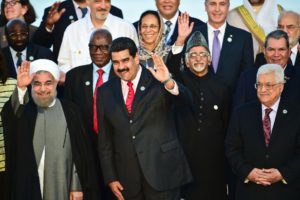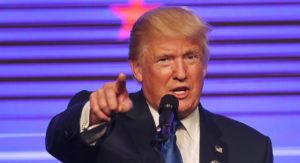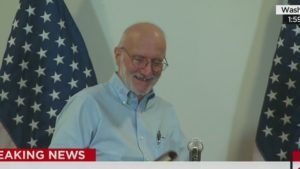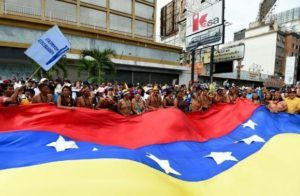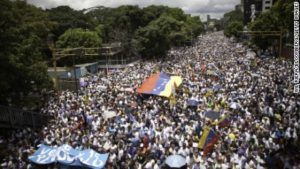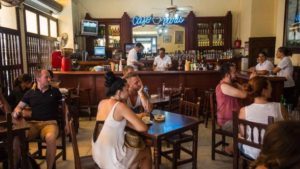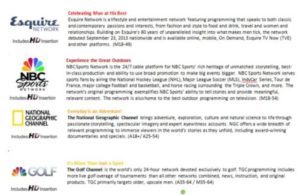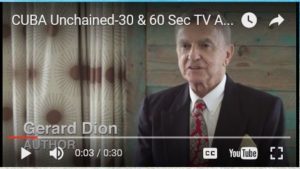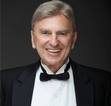Gerard Dion's Blog, page 13
September 19, 2016
Venezuela, Cuba warn of US intervention at Non-Aligned meet
Porlamar (Venezuela) (AFP) – Venezuela’s embattled President Nicolas Maduro has warned world leaders at a Non-Aligned Summit that his country was being lashed by a US economic war aimed at toppling him.
Speaking at the same event, which opened Saturday, Maduro’s closest regional ally, Cuban President Raul Castro, echoed the charge, despite his country’s thawing relations with the United States.
“Venezuela is facing an onslaught… that is against all of Latin America and the Caribbean, that is trying to re-impose and recolonize the politics, economy, culture and life of our countries,” Maduro — a socialist who has made the economy increasingly state-run — charged in his speech after taking over the movement’s rotating presidency from Iran.
Leaders from the 120-nation group, including Iranian President Hassan Rouhani, gathered for two days on Venezuela’s Caribbean island of Margarita.
Venezuela, an OPEC member and home to the world’s largest proven oil reserves, will seek backing for its campaign to slash abundant global crude production in a bid to raise prices.
Ecuadorean president Rafael Correa, whose country is the smallest member of OPEC and who supports the Venezuelan aspiration, said the oil cartel runs the risk of falling apart over differences on market strategy.
“Clearly OPEC has weakened and there is a danger of it disintegrating,” Correa said, speaking on the sidelines of the summit.
While sounding the alarm about a purported international campaign to topple him is not new, Maduro looks keen to recast the Non-Aligned movement — a Cold War relic with dwindling support — as a bulwark against re-colonization, analysts say.
Founded in 1961 to represent countries resentful of being squeezed in the power struggle between the United States and the Soviet Union, the Non-Aligned Movement has endeavoured in recent years to remain relevant in a post-Cold War world.
– Push for referendum –
The Venezuelan opposition is seeking to oust Maduro at the ballot box with a referendum.
The president maintains the United States is working with conservative local interests to oust him.
Castro, who backs Maduro’s allegations, voiced dismay at the US failure to end its embargo on Havana.
He said regional allies would derail “subversive and meddling” US plans on which he did not elaborate.
And Castro, Maduro, Correa and Bolivian President Evo Morales all slammed the recent impeachment and removal of Brazil’s ex-president Dilma Rousseff.
Rousseff, convicted in the Senate over budget irregularities, was replaced on August 31 by center-right President Michel Temer, her vice president-turned-nemesis.
– Looting and riots –
Falling oil prices have triggered an economic crisis in Venezuela, causing food shortages, outbreaks of looting and riots.
The crisis is the biggest threat yet to Maduro and the socialist “revolution” launched in 1999 by his late predecessor, Hugo Chavez.
Embattled and unpopular at home, Maduro has nowhere near the international clout once enjoyed by Chavez.
Venezuela’s opposition is pushing for a referendum on removing Maduro from power by the end of the year.
Polls indicate Maduro would lose by a hefty margin. But his opponents say electoral officials are dragging their feet to protect him.
They held fresh protests Friday after the authorities delayed announcing the timeline for the next step in the process for a second time.
Venezuelans spend long hours lining up outside supermarkets and pharmacies only to find bare shelves and soaring prices inside.
The country is facing its third year of deep recession this year, with inflation set to top 700 percent, according to the International Monetary Fund.
Cienfuegos entrepreneurs hope U.S. tourists will boost scant business
Cienfuegos, Cuba
Residents of this small city on Cuba’s southern coast awaken every other Thursday to the Fathom Line’s MV Adonia looming in the bay, but the 704-passenger cruise ship’s visit is fleeting.
Even though large and enthusiastic crowds greeted the ship on its inaugural voyage from Miami to Cuba in May, the Adonia is only in Cienfuegos for the morning, and some residents say they haven’t seen too many benefits trickle down when the Carnival Corp. ship calls in this city known as “The Pearl of the South.”
On a recent Thursday, an elderly woman trudging through the Reina neighborhood gave a quick nod toward the ship at berth and the government’s Transtur buses lined up to take the passengers on a city tour and said, “It really hasn’t resolved anything.”
But cab driver Eddy Pérez Ojeda was a bit more optimistic. Even though the ship was due to leave at noon, he said he was happy to have it. “It’s tourism. What else is there?” asked Pérez.
It’s tourism. What else is there?
Eddy Pérez Ojeda, taxi driver
He said he really wants the rapprochement with the United States to succeed and he is among those hoping that American Airlines’ new daily flights from Miami to Cienfuegos will change the equation. American began service aboard an Airbus 319, which seats 144 passengers, on Sept. 7. Silver Airways plans to begin twice weekly flights to the city using 34-seaters from Fort Lauderdale on Oct. 21.
“What’s important for me is that normalization helps communication between families,” said Pérez, who owns his own Lada taxi and is used to squiring around tourists from other countries. “The economic part [of rapprochement] hasn’t been as important for me.”
Other cuentapropistas — independent workers — would like to get a bigger piece of the economic pie now that Americans have begun to visit their city in increasing numbers.
On its website, Fathom, which recently added two new fall sailings to Cuba to complement its biweekly schedule, promises: “In Cuba, you participate in an ongoing cultural exchange program that gives you the opportunity to interact with the Cuban people, one on one.”
Some complain that the visitors’ time seems to be monopolized by the government’s tourism company
But some cuentapropistas complain that the visitors’ time seems to be monopolized by activities organized by Havanatur, a government tourism company: a quick tour of city landmarks, a stroll down El Bulevar, the pedestrian street where they get a glimpse of how Cubans shop, and then a stop at the Tomás Terry Theater for a choral performance by the Cantores de Cienfuegos.
They say the itinerary leaves scant time for interactions — both of the monetary and social kind — with everyday Cubans.
Omar Romero Díaz often parks his cart loaded with slices of cake topped with a dab of pink merengue on a side street next to the theater, which is usually cruisers’ last stop in Cienfuegos before they move on to the next port of call in Santiago.
But he said he’s never sold anything to the American visitors and the crucero (cruise ship) hasn’t really helped him. His big customers are Cubans, especially the kids from a nearby school.
It is on the steps of the theater where cuentapropistas have their best chance of interaction. Vendors from peanut salesmen who hawk roasted nuts wrapped in little paper cones to purveyors of polvorones (shortbread cookies made with lard) approach the cruisers as they stream into the theater.
“Peanuts, peanuts,” Anthony García calls out in English. For him, the cruise passengers represent pretty good business. García charges one Cuban convertible peso (CUC), which is just over $1, for the nuts and can earn 20 to 40 CUCs per day. His supplies, he said, cost him about 10 CUCs daily.
But the cruise passengers haven’t been finding their way around the corner to Yusi’s Art Alliance, a private workshop/gallery shared by 15 artists. It’s located in an old colonial house across the street from Romero’s cart of sweets.
Yusimi Arias, who is contracted to help the artists sell their work, said they could use a boost from the American visitors.
“But the guides don’t bring them in here or to the other private workshops. They give priority to the state enterprises. It’s different with the Europeans and Canadians. They can move around on their own,” said Arias. “We would like it if the state and private entrepreneurs were more connected so we could all do well.”
We would like it if the state and private entrepreneurs were more connected so we could all do well.
Yusimi Arias, art seller
Yanzel Medina Pérez, a 22-year-old artist whose hyper-realistic oil paintings are on display at the gallery, said he still hasn’t had an American buyer. Most of his sales are to Germans and other Europeans.
“It’s still early [in the U.S.-Cuba relationship] to talk about economic impact, but I have a lot of hope this will be beneficial for Cuban artists and the rest of the population,” he said.
Cuban engraver Annia Alonso, who runs a gallery-studio across from José Martí Park, was having slightly better luck. “Today I showed quite a lot,” said Alonso who displays only her own work. “I had some people from the [American] flight and on Thursday some from the cruise ship.”
But she is a well-established artist and said she also has the support of the National Union of Writers and Artists of Cuba (UNEAC), which sends her referrals.
If their guides allow it, the visitors do walk around the square, Alonso said. “For this reason, I’ve made a big sign,” she said. “Perhaps I need to make a sign in red letters.”
José Piñeiro Guardiola is one of the Cienfuegos area’s pioneers of private enterprise. For the past 22 years he has run Finca Los Colorados, a restaurant and five-bedroom bed and breakfast, just past Rancho Luna beach.
It hasn’t been easy, he concedes, with changing government regulations and attitudes towards self-employment and the constant battle to get the supplies he needs to run his business.
But he has made a go of it. “I’m listed in 22 guidebooks, international guides,” he said and began to tick them off.
However, Piñeiro said rather than encouraging cuentapropistas, the Cuban government sees them as competition: “I feel the government is trying to monopolize tourism for itself.”
He used to hold Benny Moré-themed parties at the finca where he would do DJ mixes of famous Moré mambos and rumbas with reggaeton. Some of the parties, which were held in a large patio anchored by two bars, attracted as many as 400 to 500 young Cubans, he said.
“But the government didn’t want me to have that type of party here,” Piñeiro said. “It was suggested I could do smaller parties for around 50 people in tourist groups.”
Since the summer season has been difficult, Piñeiro’s glad that more Americans may be arriving on AA flights. “We want to break the ice and open our hearts [to Americans],” he said. “Of course, it’s complicated by politics. But it’s necessary to open up. It’s our time.”
“We want to break the ice and open our hearts [to Americans].”
José Piñeiro Guardiola, cuentapropista
Clarity on the direction of the opening with the United States, he said, will have to wait a few months until the U.S. presidential election.
“People see in Hillary Clinton the continuation of the work of Obama,” he said.
With Donald Trump, he is not so sure. “Sometimes he says he wants to change the relationship and he is critical of Obama,” Piñeiro said, “but sometimes he says black and sometimes he says white so I just don’t know. We’re going to have to wait to see, but the Cuban people do dream a new relationship with the United States can be possible.”
Christine Valls, AA’s regional sales director for Florida, Puerto Rico, the Caribbean and the U.S. Hispanic market, says the airline is supportive of the efforts of cuentapropistas and hosted a group of young Cuban entrepreneurs at its offices this summer. They were taking part in a Florida International University entrepreneurial training program called InCubando@FIU
Although many of the private businesses are small, they have an enormous amount of potential, she said.
“For people who want change, to develop markets, that’s where they need to start — with the cuentapropistas,” Valls said. “If we develop business ties between the two countries, the passengers will get aboard the flights.”
In Miami, Trump morphs back into a Cuba hardliner
By Marc Caputo Marc Caputo is POLITICO’s Florida political reporter.
09/16/16 09:24 PM EDT
Donald Trump once called President Barack Obama’s rapprochement with Cuba “fine” and said that, though he would’ve cut a better deal, “50 years is enough” for the U.S. embargo.
But during a Friday rally in Miami, Trump sounded very much like every other Republican presidential nominee promising to keep a hard line on Cuba as he seeks the support of the influential Cuban-American exile community.
Story Continued Below
“All the concessions that Barack Obama has granted the Castro regime were done through executive order, which means the next president can reverse them — and that I will do unless the Castro regime meets our demands. Not my demands. Our demands,” Trump said, as 2,500 supporters cheered him on.
“Those demands are religious and political freedom for the Cuban people. And the freeing of political prisoners,” Trump said before questioning whether he hit the correct pro-embargo notes: “Is that right?”
The crowd cheered.
Those demands for a free Cuba have been U.S. policy for years. And Trump once firmly stood with the exile community on the issue. But as a presidential candidate this cycle, Trump began softening his position and has sounded less enthusiastic about the embargo, a sentiment that’s even shared by Miami-Dade County’s changing Cuban-American community, where 54 percent now favor lifting the sanctions in a new poll.
September 11, 2016
Ex-Cuba prisoner backs Clinton for president
By Eugene Scott, CNN
Updated 4:16 PM ET, Sat September 10, 2016
Gross was imprisoned in Cuba from December 2009 through December 2014
Three months ago, Alan Gross began an exciting journey: After years in a Cuban prison, he once again began to enjoy a life of freedom.
Washington (CNN)A former Cuban prisoner says he’s voting for Hillary Clinton because he believes the Democratic nominee will advance the new US politics toward the island.
“I support her commitment to continue and improve our new Cuba policy. It was about time to recognize that if we want the Cuban government to get out of the way of its private sector and private citizens, we also need to get out of the way,” wrote Alan Gross, an economic development and community engagement consultant, in a Sun-Sentinel op-ed published Saturday.
Gross was imprisoned in Cuba from December 2009 through December 2014 after he was arrested for allegedly importing banned communications equipment to the island. He said he was helping Cuba’s Jewish community get online, but officials accused him of attempting to destabilize the island’s single-party Communist government.
3 months out of a Cuban prison, Alan Gross savors his freedom
“I spent five years as a political prisoner in Cuba. During that difficult time, I learned that each of us has control over how we respond to adversity. How we respond helps determine our future,” he wrote.
Read More
Gross is not supporting Donald Trump because he believes the GOP candidate will make America less safe.
“By ignoring principles at the core of who we are, Donald Trump would make us less safe and less respected. He already has,” he wrote. “I find great difficulty respecting someone who lacks respect for anything other than his own ‘brand’ (except when it comes to foreign strongmen for whom he seems to have a strange admiration). The ‘brand’ of the president is the USA, and our country should not be treated like some failed casino, failed airline, or fraudulent university.”
Clinton’s international government experience is what makes her the most prepared candidate to be a global leader, Gross believes.
“We face major challenges today. But we can meet these if we embrace the kind of smart, tough, and experienced leadership that Hillary exemplifies,” Gross wrote. “This is precisely why I am voting for Hillary. She does not make shallow, knee-jerk decisions. She studies alternatives and finds the right path, drawing upon substantial experience as a lawyer and advocate, in the White House, in the Senate, and in the State Department.”
In late 2014, Obama announced that the US and Cuba were normalizing relations, and earlier this year he became the first sitting US president to visit the longtime US foe since 1959. He has since called for the US embargo against Cuba to be lifted.
US should embrace a changing Latin America
By Frida Ghitis
Frida Ghitis is a world affairs columnist for The Miami Herald and World Politics Review, and a former CNN producer and correspondent. Follow her @FridaGhitis. The opinions expressed in this commentary are hers.
(CNN)Events in Latin America typically garner little attention in the United States. But from Brazil to Venezuela, from Colombia to Cuba, an avalanche of important stories has helped the region pierce the shield of indifference to find a place in the headlines.
Frida Ghitis: Latin America’s revolutionary movements are receding
The next US president will be dealing with increasingly strong, independent countries, she says
(CNN)Events in Latin America typically garner little attention in the United States. But from Brazil to Venezuela, from Colombia to Cuba, an avalanche of important stories has helped the region pierce the shield of indifference to find a place in the headlines.
Some stories, like Donald Trump’s quick trip to Mexico, have obvious and immediate relevance to the US news cycle. But don’t be fooled by the largely domestic nature of some of the other stories coming from south of the border. The reality is that we will be hearing more and more about the transformation taking place in the region, and why that will matter for the agenda of the next US president. Consider what has occurred in Latin America just this past week.
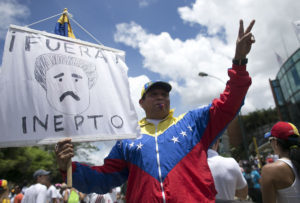
A protester holds a sign with a drawing depicting Venezuela’s President Nicolas Maduro and a message that reads in Spanish; “Get out klutz” during a march in Caracas, Venezuela, Thursday, Sept. 1, 2016. Venezuela’s opposition is vowing to keep up pressure on President Nicolas Maduro after flooding the streets of Caracas with demonstrators Thursday in its biggest show of force in years. Protesters filled dozens of city blocks in what was dubbed the “taking of Caracas” to pressure electoral authorities to allow a recall referendum against Maduro this year. (AP Photo/Ariana Cubillos)
Monday, Colombians woke up for the first time in most people’s lives to a “permanent ceasefire,” part of a peace plan between the government and Marxist rebels that could put an end to a conflict that has lingered for more than five decades.
Meanwhile, legislators in Brazil lined up on the Senate floor to condemn President Dilma Rousseff, after she took the stand Monday in her own defense during impeachment proceedings against her. Senators voted 61-20 to remove her from office, finding her guilty of breaking budget laws to conceal the size of the national deficit.
Wednesday, US news outlets took a break from their relentless coverage of Trump’s trip to meet Mexican President Enrique Peña Nieto to cover the story of the first US commercial flight in more than 50 years touching down in Cuba.
And Thursday, hundreds of thousands took to the streets of Caracas to demand a prompt referendum that could mark the end of Venezuelan President Nicolas Maduro’s time in office.
All this is part of the historic transformation going on in Latin America. And while that transformation didn’t start this week, it has become increasingly clear how the people of the region (with the notable exception of Cuba) have been taking charge of their respective countries in new ways.
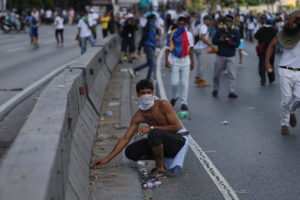
An anti-government demonstrator picks up a stone during a protest in Caracas, Venezuela, Thursday, Sept. 1, 2016. Venezuela’s opposition is vowing to keep up pressure on President Nicolas Maduro after flooding the streets of Caracas with demonstrators Thursday in its biggest show of force in years. Protesters filled dozens of city blocks in what was dubbed the “taking of Caracas” to pressure electoral authorities to allow a recall referendum against Maduro this year. (AP Photo/Fernando Llano)
Latin America’s revolutionary movements, a feature of the Cold War in the continent’s jungles and universities, are receding. And while guerrilla armies live on in Colombia, even there they long ago shifted from saviors of the masses to narco-capitalists and kidnapping entrepreneurs, now hated even by the peasants on whose behalf they claimed to struggle.
True, the 1990s had already brought the process of democratization, with elected governments — and idealistic leftists — eventually rising to power across the region. But voters also discovered that simply electing left-of-center governments brought no guarantees of prosperity for the poor. The left, once entrenched, proved just as prone to corruption as the right. And those who took power seemed concerned more than anything with keeping it.
In some countries, governments hollowed out democratic institutions to cement their grip, while vows to end poverty started crumbling when the price of oil and other export commodities collapsed. In Venezuela, for example, the government introduced spectacularly incompetent economic policies, turning a functioning economy into a wasteland of shortages and despair. Fast forward to this week, and the country’s people are raising the pressure and demanding accountability.
In Brazil, too, the collapse of the Rousseff government can be viewed as part of a larger movement. For all its flaws, the impeachment process in that country has underscored the public’s exasperation with widespread corruption — an insidious, demoralizing and destructive enemy of prosperity and justice. Rousseff claimed she was the victim of a coup. But she was, for the most part, removed by constitutional means. That in itself marks progress.
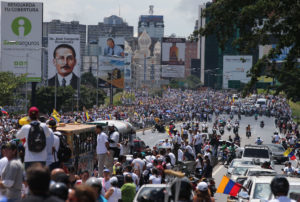
Demonstrators take part in the “taking of Caracas” march in Caracas, Venezuela, Thursday, Sept 1, 2016. Venezuela’s opposition is vowing to keep up pressure on President Nicolas Maduro after flooding the streets of Caracas with demonstrators Thursday in its biggest show of force in years. Protesters filled dozens of city blocks in what was dubbed the “taking of Caracas” to pressure electoral authorities to allow a recall referendum against Maduro this year. (AP Photo/Fernando Llano)
The fact is, voters are fed up with the country’s economic tailspin and endemic corruption and the multi-billion dollar scandal that has entangled politicians of all stripes. Incoming President Michel Temer, sworn in just after Rousseff was voted out, will finish her term. And like hundreds of other politicians and prominent figures, he has also been linked to a corruption probe. Corruption will not, of course, disappear overnight, but the dramatic events of this week could mark a significant turning point, and they have at the very least put everyone on notice that the rules are changing.
This is important because if corruption can be sharply curtailed, the continent will almost inevitably change for the better. Democratic norms will improve, business practices will become cleaner, investors will then feel safer and governments will feel under increasing pressure to act more ethically. This virtuous cycle will help further improve Latin America’s standing on the international stage as each country finds its own path. And while eradicating poverty and fueling prosperity are still the top priorities for all, the lessons of the past decade or two are that the job takes genuine skill and effective policies, not just a social conscience.
CNN Opinion
Once upon a time, not very long ago, many Latin American countries were ruled by governments beholden to Washington or to its rivals. Democracy, where it existed, was dominated by small groups that looked after their own interests. But even as the United States has been distracted by developments in the Middle East and Asia, as well as the war on terror, the region has been changing, and the condescending description of many nations as “Banana Republics” no longer applies. (And that’s a particular irony considering the way the United States is dabbling with some “Banana Republicanism” of its own, namely authoritarianism, demagoguery and histrionic politicians).
Ultimately, as the changes in the region solidify, Latin America will become more prosperous, more independent, and more important. The next president of the United States will find that he or she is dealing with increasingly strong, independent countries — and will need to see them as far more than an opportunity to score political points at home.
Cuban military expands its economic empire under détente
Tourists sit in the Cafe Paris, in Old Havana, Cuba, Thursday, Sept. 8, 2016. Over a quarter century, the City’s Historian office turned Old Havana into a painstakingly restored colonial jewel, a tourist draw that brings in more than $170 million a year, according to the most recent available figures. The office became a center of power with unprecedented budgetary freedom from the island’s communist central government. Last month, the Cuban military took over the business operations of the City Historian’s Office, taking away its independence
HAVANA – At the height of Cuba’s post-Soviet economic crisis, a man with the obscure title of city historian began transforming Havana’s crumbling historic center block by block, polishing stone facades, replacing broken stained glass and repairing potholed streets.
Over a quarter century, Eusebio Leal turned Old Havana into a painstakingly restored colonial jewel, a tourist draw that brings in more than $170 million a year, according to the most recent available figures. His office became a center of power with unprecedented budgetary freedom from the island’s communist central government.
That independence is gone. Last month, the Cuban military took over the business operations of Leal’s City Historian’s Office, absorbing them into a business empire that has grown dramatically since the declaration of detente between the U.S. and Cuba on Dec. 17, 2014
The military’s long-standing business wing, GAESA, assumed a higher profile after Gen. Raul Castro became president in 2008, positioning the armed forces as perhaps the prime beneficiary of a post-detente boom in tourism. Gaviota, the military’s tourism arm, is in the midst of a hotel building spree that outpaces projects under control of nominally civilian agencies like the Ministry of Tourism. The military-run Mariel port west of Havana has seen double-digit growth fueled largely by demand in the tourism sector. The armed forces this year took over the bank that does business with foreign companies, assuming control of most of Cuba’s day-to-day international financial transactions, according to a bank official.
“GAESA is wisely investing in the more international — and more lucrative — segments of the Cuban economy. This gives the military technocrats a strong stake in a more outwardly oriented and internationally competitive Cuba deeply integrated into global markets,” said Richard Feinberg, author of “Open for Business: The New Cuban Economy.”
Castro has never publicly explained his reasoning for giving so much economic power to the military, but the armed forces are widely seen in Cuba as efficient, fast-moving and relatively unscathed by the low-level payoffs and pilferage that plague so much of the government. Economic disruption also is viewed as a crucial national security issue while the government slowly loosens its once-total hold on economic activity and renews ties with its former Cold War enemy 90 miles to the north.
While U.S. President Barack Obama has said detente was meant partly to help ordinary Cubans develop economic independence from a centrally planned government that employs most of the island’s workers, the Cuban government says the U.S. should expect no change in Cuba because of normalization with the U.S.
The takeover of Old Havana shows how the Cuban government is, so far, successfully steering much of the peace dividend into military coffers.
The announcement nearly two years ago that the U.S. and Cuba were restoring diplomatic relations set off a tourism boom with Old Havana at its epicenter. The cobblestone streets are packed with tourists browsing souvenir stands, visiting museums and dining in trendy private restaurants. World figures and celebrities from Madonna to Mick Jagger to Pope Francis and Obama have all visited. Hotels are booked well through next year.
The largest business arm of the historian’s office, Habaguanex, named for a pre-Columbian indigenous chief, directly runs some 20 hotels and 30 stores and more than 25 restaurants in Old Havana.
Under a special exemption by the ruling Council of State, the office has been allowed to use its revenues as it sees fit rather than returning them to the national treasury and receiving a yearly budget allocation from the central government. That 1993 measure is widely credited for giving Leal the power and flexibility to restore Old Havana to international standards while much of the rest of Havana suffers from neglect that has left buildings collapsing and streets rutted with big potholes
A towering figure in Cuba’s intellectual and political life, Leal, who turns 74 on Sept. 11, is often chosen to deliver meditations on Cuban history and culture at major public events. He has never groomed an obvious successor. He has appeared frail and thin in some recent public appearances and close associates say he has been receiving treatment for a serious illness.
“I’m giving up everything that I think should be, under current conditions, better directed,” Leal told The Associated Press when asked about the military takeover of his financial operations. “There’s a reality. I was trained and educated to work in cultural heritage, and that’s my calling.”
Through its economic wing, the blandly named Business Administration Group, the Cuban armed forces have become the nation’s biggest retailer, importer and hotelier. The military corporation Cimex, created two decades ago, counts retail stories, auto-rental businesses and even a recording studio among its holdings. The military retail chain TRD has hundreds of shops across Cuba that sell everything from soap to home electronics at prices often several times those in nearby countries. Gaviota has 62 hotels with 26,752 rooms across Cuba, pulling in some $700 million a year from more than 40 percent of the tourists who visit Cuba.
Cuba welcomed more than 3 million tourists last year, a nearly 20 percent rise over 2014.
“It’s obvious that the military has an economic power far beyond what’s needed for its national-security responsibilities,” said Arturo Lopez-Levy, a political science lecturer at the University of Texas-Rio Grande Valley.
The Cuban government did not respond to a request for comment on the military’s business operations.
The Business Administration Group, known by its Spanish acronym GAESA, formally took over the city historian’s office on Aug. 1, according to three employees with the office who spoke on condition of anonymity because they were not authorized to talk with the press.
“They’re going to carve everything up and it’ll be absorbed by military businesses that are already operating. The hotels go to Gaviota, the restaurants to Cimex and the stores to TRD,” said one of the officials.
Going forward, the historian’s office will be responsible only for cultural projects and will retain only the proceeds of museum entry fees and souvenir stores, officials told the AP.
“They’re going to impose discipline and probably it’ll function better that way,” said another official in the business wing of the historian’s office. “It will affect those of us on the business side, but I don’t think it will affect cultural projects. The Cuban military isn’t stupid.”
Associated Press writer Michael Weissenstein contributed to this report. Andrea Rodriguez on Twitter: https://twitter.com/ARodriguezAP Michael Weissenstein on Twitter: https://twitter.com/mweissenstein
September 4, 2016
August 30, 2016
Barnes & Nobel Book Signing Event Featured Author: Gerard Dion.
A political thriller snatched from today’s headlines.
View this email in your browser
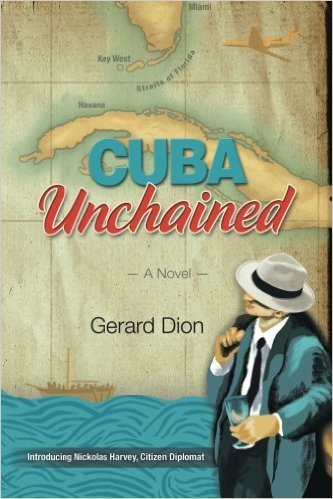
Barnes & Nobel Book Signing Event
Featured Author: Gerard Dion.
Gerard Dion’s debut novel introduces Nickolas Harvey, an unconventional citizen diplomat, in efforts to collapse the last ‘Cold War’ relic, the U.S.-Cuban relationship and associated embargo. This fictional inside story behind today’s current events.
Located in: Grossmont Shopping Center
Address: 5500 Grossmont Center Dr, La Mesa, CA 91942
September 17, 2016 from 1:00PM to 3:00PM
Barnes and Nobel store Phone: (619) 667-2870
CUBA Unchained is about a Nickolas Harvey, a wealthy defense industrialist, a U.S. Marine officer. With associates and old friends he creates a new organization called Americans For Reconciliation With Cuba he quickly realizes that those for and against U.S.-Cuban normalization are well organized, entrenched and are willing and capable of doing anything, including mayhem and assassination to maintain the status quo.
CUBA Unchained
has already received great interest from the media, and has been reviewed by Kirkus, Blue Ink, Clarion,
You can learn more about the book at http://www.dionpublishingcompany.com/
I look forward to seeing you there .
Sincerely,
Gerard Dion
For more information Contact
Sallie Escobedo
619-807-0291
Visit us at
http://www.cubaunchained.com/home.htmlAuthor web site http://www.dionbooks.com/
My Blog http://www.dionpublishingcompany.com/
Join us at https://www.facebook.com/cubaunchained
August 29, 2016
A journey for which they’d risked everything.
By Costa Rica Foreign Minister Manuel González
For many of the deportees, the return to Cuba represents the end of what had been a We don’t disregard the humanitarian perspective. But this has cost us millions of dollars, and millions of dollars that we don’t have available. Costa Rica Foreign Minister Manuel González
A journey for which they’d risked everything.
José Antonio Quesada, 46, and his pregnant wife, who reached Miami on May 10, recounted his journey in a tale that gains in poignancy when viewed from the perspective of those who failed.
The two lawyers sold their house and everything else they owned and leaned on family in Miami to raise the $2,300 – the equivalent of five years’ salary – that they needed for the journey for airfares, bus fares and smuggling fees. They spent two months traveling from Ecuador over Colombia’s mountains and through Panama’s jungles before they were able to board a flight to Mexico and then to the United States.
But he has friends who are stuck in southern Panama because they couldn’t afford the journey and now the borders are closed.
“If we tried to come now, we would not be able to make it,” Quesada said. “I have a friend who is still stuck in Puerto Obaldia in Panama.”
People are coming more through the water. Cuban activist Ramon Saul Sanchez
Perhaps encouraged by the Cubans, a surge of migrants from Haiti, Africa and the Middle East have been following a similar route, drawing comparisons to the much larger migration crisis unfolding in Europe.
EDITORS: BEGIN OPTIONAL TRIM
The exodus is a huge concern for Cuban officials, who charge the United States is encouraging “illegal” and dangerous migration by tens of thousands of Cubans who fear their windows of opportunity might close. The communist government likens the migrant flow to stealing – many would-be arrivals are professionals trained at Cuban government expense – and see it as an obstacle to improved relations with the United States.
It’s a touchy subject for the United States, which has long generously welcomed Cubans who fled the repressive regime constructed by Fidel Castro. But times have changed. The Cold War is over. The two countries, once bitter enemies, have re-established relations.
Obama: It’s time for the U.S. and Cuba to leave the past behind
http://www.mcclatchydc.com/news/nation-world/article67508502.html
During a historic speech in Havana Tuesday, President Obama acknowledged past struggles in Cuban-American relations, and promised a new chapter in the history of the two countries. “I have come here to bury the last remnant of the Cold War in the Americas
WhiteHouse.gov

